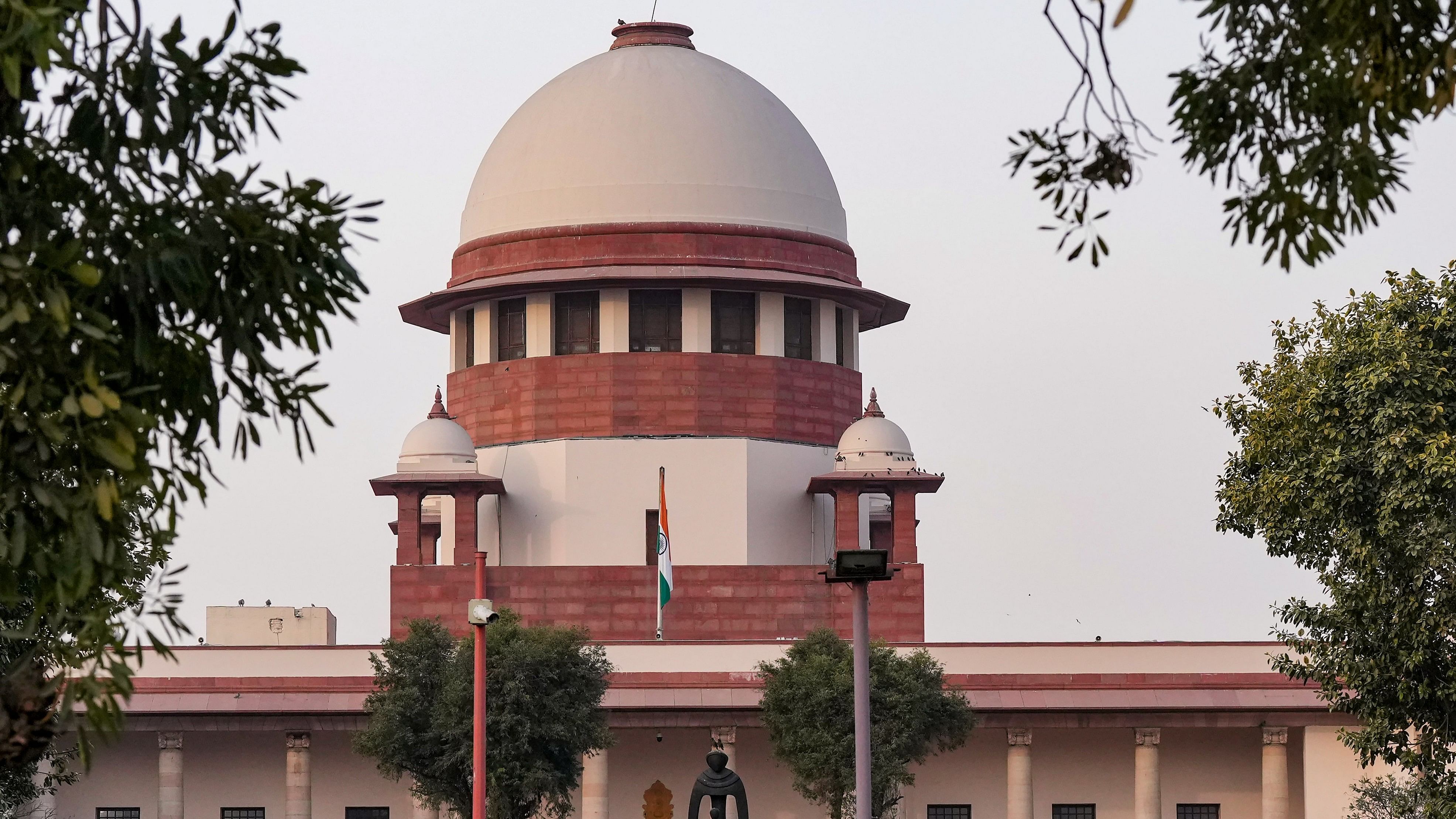
Supreme Court of India.
Credit: PTI File Photo
New Delhi: The Supreme Court on Thursday said that courts cannot direct the States to implement a particular policy or scheme on the ground that a better, fairer or wiser alternative is available.
The top court declined a plea to direct the state governments and Union Territories to run community kitchens to combat hunger, malnutrition and starvation deaths.
A bench of Justices Bela M Trivedi and Pankaj Mithal said the court would not propose to issue any direction on a 2019 PIL filed by Anun Dhawan and others, since with the enactment of the NFSA, 2013, there has been a paradigm shift in the approach to food security from “welfare to rights-based approach".
The said Act has been implemented in all States/ UTs, the court said.
"Though the Constitution does not explicitly provide for Right to food, the fundamental Right to life enshrined in Article 21 does include Right to live with human dignity and right to food and other basic necessities. The Article 47 of the Constitution also provides that the State shall regard the raising of level of nutrition and the standard of living of its people and the improvement of public health as among its primary duties," the bench said.
The court, however, pointed out the National Food Security Act with a "rights-based approach" for providing food and nutritional security, is in force and other welfare schemes under the said Act have also been framed and implemented by the Union and the state governments, to ensure access to adequate quantity of quality food at affordable prices to people to live a life with dignity.
"We do not propose to direct the States/UTs to implement the concept of Community Kitchens as prayed for by the petitioners in the instant petition," the bench said.
The court also pointed out a systematic legal framework has been provided under the NFSA for the implementation of the schemes and programmes like Targeted Public Distribution System, Mid-day Meal Scheme, Integrated Child Development Services and Maternity Cash Entitlement along with a Monitoring Mechanism and a Grievance Redressal Mechanism. It also said the States/UTs have also implemented various other schemes and programmes under the said Act.
"It is well settled that the scope of judicial review in examining the policy matters is very limited. The courts do not and cannot examine the correctness, suitability or appropriateness of a policy, nor are the courts advisors to the executive on the matters of policy which the executive is entitled to formulate," the bench said.
The petitioners contended even if hunger, malnutrition or starvation may not necessarily result in death, the Centre and States have the constitutional duty to ensure basic sustainability of human life.
Additional Solicitor General R Bala for the Union government gave the details of schemes, programmes, policies and other measures taken by the central government and the state governments to address the issue.
